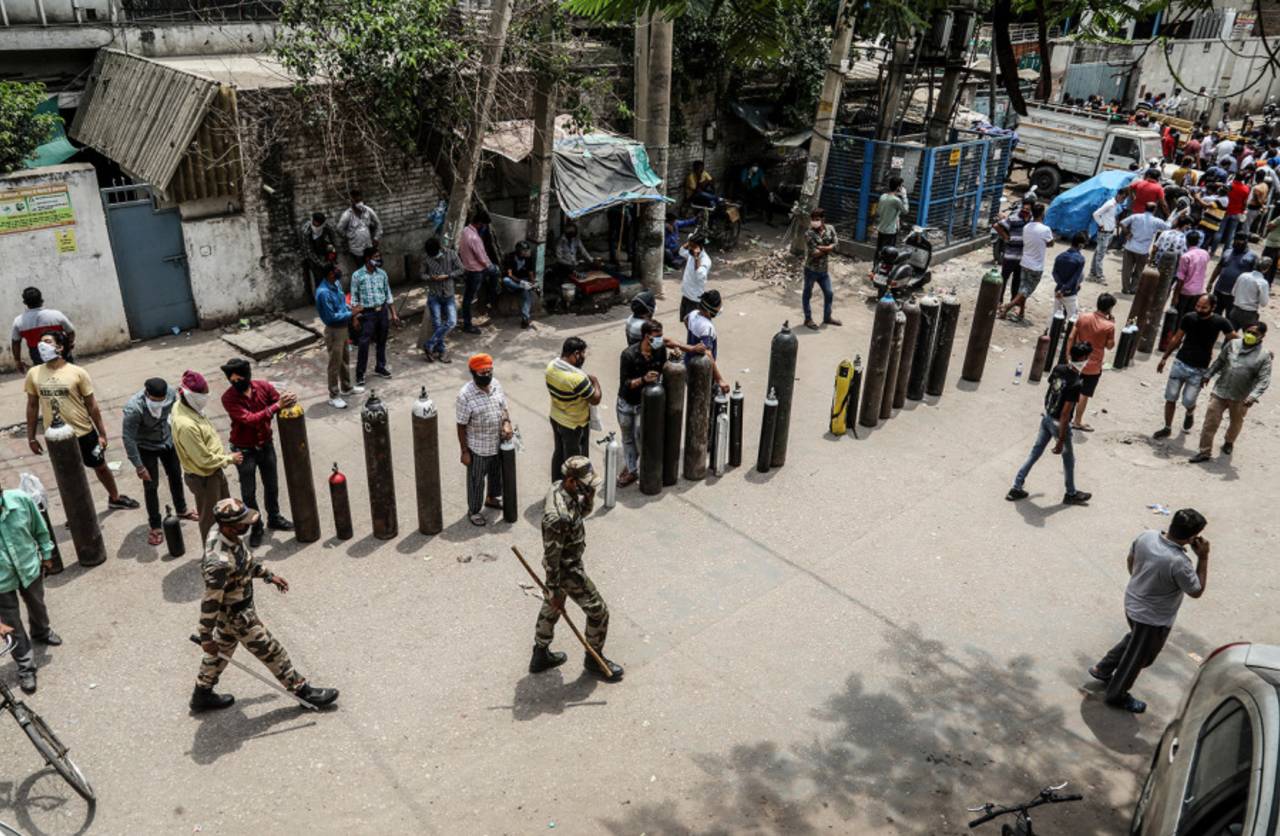If you want an extreme example of resilience in the game of cricket then you need look no further than the Indian team that recently toured Australia.
Despite the challenges, they played some skilful, entertaining cricket to beat a side renowned for their home-turf prowess. It was an outstanding achievement by an irrepressible bunch of competitors.
The game is going to require a similar dose of resilience as it continues to face a number of searching challenges. Currently administrators and players in the IPL are encountering a daunting task as Covid cases in India continue to surge.
For the players, there is the fear of serious health issues and the challenge of bubble fatigue. The administrators, on the other hand, have the enormous responsibility of keeping everybody safe while weaving their way through a maze of rigorous protocols that can change daily. Is it any wonder that mental health concerns are on the tip of everybody's tongue?
Once the IPL is completed, hopefully without any major setbacks, there's the challenge for England's administrators to repeat last summer's juggling act of hosting four touring teams for a series of matches - New Zealand and India for Tests and Pakistan and Sri Lanka for limited overs.
This means that all the players visiting England from India are going to face strict quarantine hurdles before being able to play cricket. As well as the Indian squad, these regulations will also apply to New Zealand and England players who have been in the IPL. It will be a severe test of the administrators' diplomatic skills and the players' patience.
While the BCCI has the resources to withstand a severe financial buffeting, the ECB will be stretched to the limit if yet another season becomes a financial drain. England's resources will be further under pressure as they have made a heavy investment in a new form of the game.
As if those weren't enough challenges to be faced, there's another debutant - the World Test Championship final between India and New Zealand in Southampton in June.
Then there's the
T20 World Cup to be staged in India later in the year. Hosting this multi-team tournament will present a challenge only surpassed by Japan trying to accommodate the Olympics as the pandemic continues to threaten the world.
In the midst of all these challenges, there's further turmoil with the
administrative upheaval occurring in South Africa, one of the stronger cricket-playing nations. The game can't afford another West Indies-style slide into mediocrity - certainly at Test level - from one of its major draws.
If cricket's administrators and players thought last year was a severe test, it's proving to be just a rehearsal for what has to be the game's most challenging 12 months.
It is said that what doesn't kill you makes you stronger. If this year's challenges are overcome, it could indeed strengthen the game, but it won't happen by luck. It will require much thought and some long-term planning, combined with a strong dose of resilience.
Test cricket, which often appears to be teetering on the edge of a precipice, is the form of the game that needs the most nurturing in these challenging times. It would help the process if India and New Zealand provide an entertaining spectacle at the WTC final.
If even half those challenges are successfully met, it will be a triumph born from resilience and creativity.
Former Australia captain Ian Chappell is a columnist
